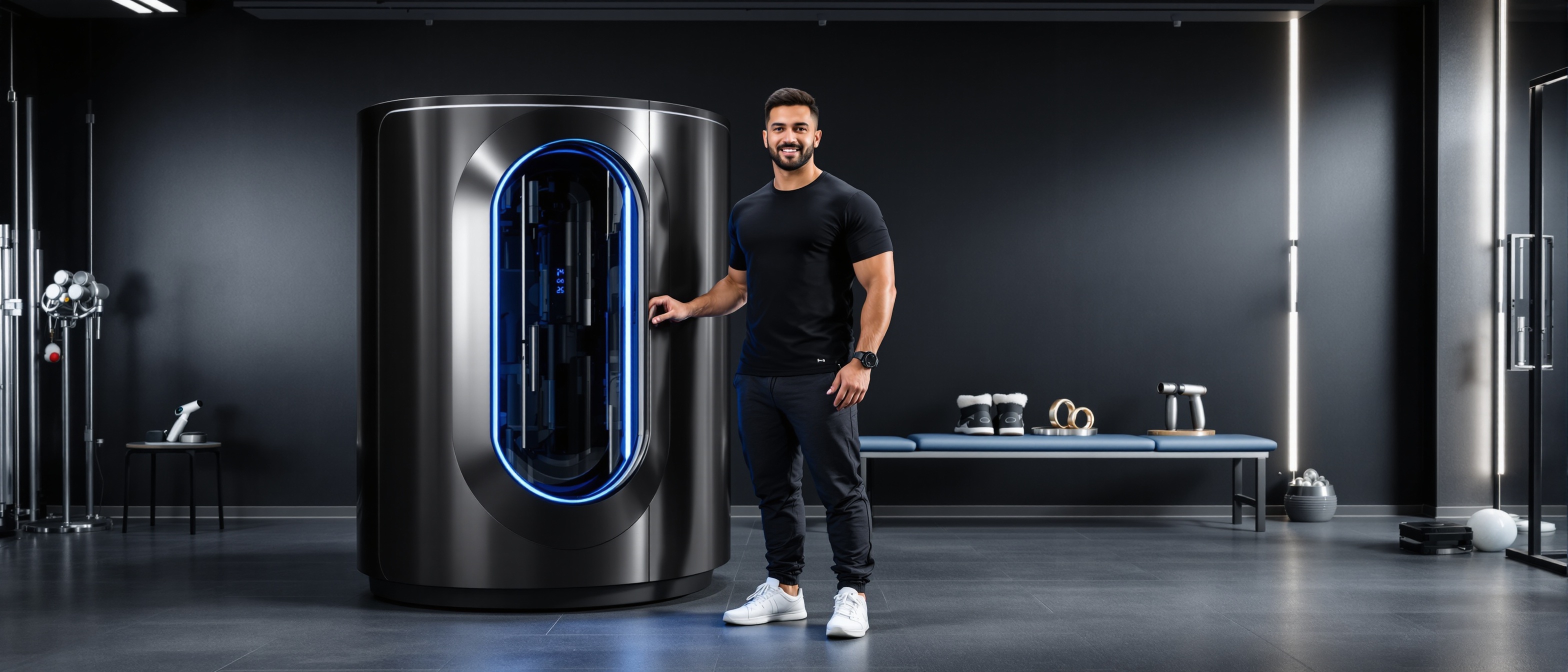Workout Focus Pills: The $80 Scam They Don't Want You to Know
Your pre-workout is buzzing through your veins, but your mind feels like it's swimming through molasses. Sound familiar?
Welcome to the weird world of 2025 fitness, where people are dropping $80 on "brain-hacking" pills that promise laser focus during their workouts. Nootropics—or "smart drugs"—are having their fitness moment, with searches spiking 340% in the past year. Reddit threads are exploding with before-and-after stories, and supplement companies are racing to cash in.
But here's the uncomfortable truth: Most of what you're seeing is smoke and mirrors. And some of it might actually be dangerous.
Let me walk you through what's really happening when you pop that "cognitive enhancer" before your next gym session.
What Are Workout Nootropics?
Think of nootropics as the supplement world's answer to Adderall—but with way less oversight and wildly inconsistent results.
The term "nootropic" was coined in the 1970s by Romanian scientist Corneliu Giurgea. His original definition? Substances that enhance learning and memory while being safe and non-toxic. Pretty reasonable, right?
Fast-forward to today's supplement aisle, and that definition has been stretched thinner than your gym leggings. Now anything that claims to boost "brain power" during exercise gets slapped with the nootropic label.
The most hyped ingredients flooding Instagram ads right now?
- Alpha-GPC: Marketed as a "choline powerhouse" for razor-sharp focus
- Lion's Mane: The trendy mushroom that supposedly "rewires your brain"
- Rhodiola Rosea: An adaptogen that claims to slash mental fatigue
- Phenylpiracetam: The "Olympic-banned" compound (red flag, anyone?)
- Modafinil analogs: Sketchy cousins of prescription wakefulness drugs
But here's what the supplement companies won't tell you: throwing these ingredients together doesn't automatically create some cognitive super-serum. Your brain isn't a computer that just needs better RAM.
Claims vs Science: Key Ingredients Reviewed
Time for some uncomfortable reality checks.
Alpha-GPC: The "Focus King"**
The claims are bold. "Boosts acetylcholine for unmatched mental clarity!" "Used by professional athletes!"
The research? A recent 2024 study found that Alpha-GPC might improve cognitive performance in young, healthy males—but the effects were modest and inconsistent. We're talking small sample sizes and short-term testing. Not exactly the brain-transformation promised on those flashy labels.
Lion's Mane: The "Neural Regenerator"
Instagram fitness influencers swear this mushroom extract is "growing new brain cells" and "upgrading their workout IQ."
The science says… maybe? Some promising animal studies show potential for nerve growth factor stimulation. But human trials specifically for exercise focus? Practically nonexistent. You're essentially betting your money on mouse studies.
Rhodiola Rosea: The "Fatigue Fighter"
This one actually has some decent research—but not necessarily for what you think. Studies suggest it might help with general mental fatigue and stress adaptation. For workout-specific focus enhancement? The evidence is thin.
And here's the twist that changes everything: The one combination that actually works isn't being hyped at all.
Caffeine + L-Theanine: The Unsexy Champion
While everyone's chasing exotic mushrooms and unpronounceable compounds, the most scientifically supported nootropic combo for workout focus is sitting in your kitchen cabinet.
Multiple controlled studies confirm that caffeine paired with L-theanine delivers improved attention, reduced jitters, and better cognitive performance during demanding tasks. It's not flashy. It doesn't cost $3 per serving. But it actually works.
The magic ratio? About 100mg caffeine to 200mg L-theanine. You can get this from green tea or simple, cheap supplements.
But here's what most people get wrong…
Risks, Regulation, and Safety
Remember when I said some of this stuff might be dangerous? This is where things get dark.
The FDA doesn't regulate nootropic supplements the way they regulate actual medications. That $60 bottle of "Brain Boost X-treme" sitting in your Amazon cart? It could contain literally anything.
A 2023 analysis by the U.S. Department of Defense found that numerous nootropic supplements contained:
- Undisclosed stimulants (some banned by WADA)
- Synthetic drugs not approved for human consumption
- Dosages wildly different from what's listed on labels
- Heavy metal contamination
One particularly sketchy trend: "research chemicals" being marketed as nootropics. These are untested compounds with zero human safety data. You're essentially volunteering as a test subject.
The Red Flags to Watch For:
- Claims about "banned by the Olympics" (that's usually for good reason)
- Proprietary blends that hide exact dosages
- Companies that won't provide third-party lab testing
- Marketing that sounds like pharmaceutical advertising
- Prices that seem too good to be true
And here's the uncomfortable question nobody's asking: Why are you looking for chemical shortcuts for something your brain can already do?
Non-Supplement Strategies for Focus
Plot twist: The most effective "nootropics" for workout focus don't come in bottles.
Pre-Workout Rituals That Actually Work:
- Music priming: Create a specific playlist that signals "focus mode" to your brain
- Visualization: Spend 2-3 minutes mentally rehearsing your workout
- Controlled breathing: 4-7-8 breathing pattern to optimize nervous system state
- Environment design: Train at consistent times to build associative focus cues
The Sleep Connection Nobody Talks About:
Your workout focus is largely determined by what happened 6-8 hours earlier in bed. Chase cognitive supplements all you want, but if you're sleep-deprived, you're building a house on quicksand.
Nutrition Timing That Beats Pills:
- Strategic carb timing (30-60 minutes pre-workout)
- Adequate hydration (even 2% dehydration tanks cognitive performance)
- Avoiding blood sugar crashes that kill mental clarity
The Training Variable You're Ignoring:
Consistency itself is nootropic. Your brain gets better at focusing during workouts the more you practice focusing during workouts. Shocking, I know.
But here's the final twist that the supplement industry desperately doesn't want you to realize…
TL;DR:
• Most workout nootropics are hype with weak evidence • Caffeine + L-theanine is the only combo with solid research backing • FDA doesn't regulate these supplements—many contain sketchy ingredients • Sleep, hydration, and consistency beat pills 99% of the time • Your brain already has the hardware; you just need better software (habits)
The Bottom Line:
Your Instagram feed is full of people claiming exotic supplements transformed their workout focus. Most of them are selling something.
The unglamorous truth? The biggest upgrade to your mental performance might be going to bed 30 minutes earlier and drinking an extra glass of water. Not as exciting as "brain-hacking" pills, but a lot more effective.
And definitely safer.
So before you drop serious cash on the latest nootropic trend, ask yourself: Am I looking for a shortcut to solve a consistency problem? Because your brain—and your wallet—might thank you for choosing the boring solution that actually works.
Sources
https://explodingtopics.com/blog/fitness-industry-trends
https://www.kaggle.com/datasets/thedevastator/unlocking-fitness-insights-from-popular-reddit-p





